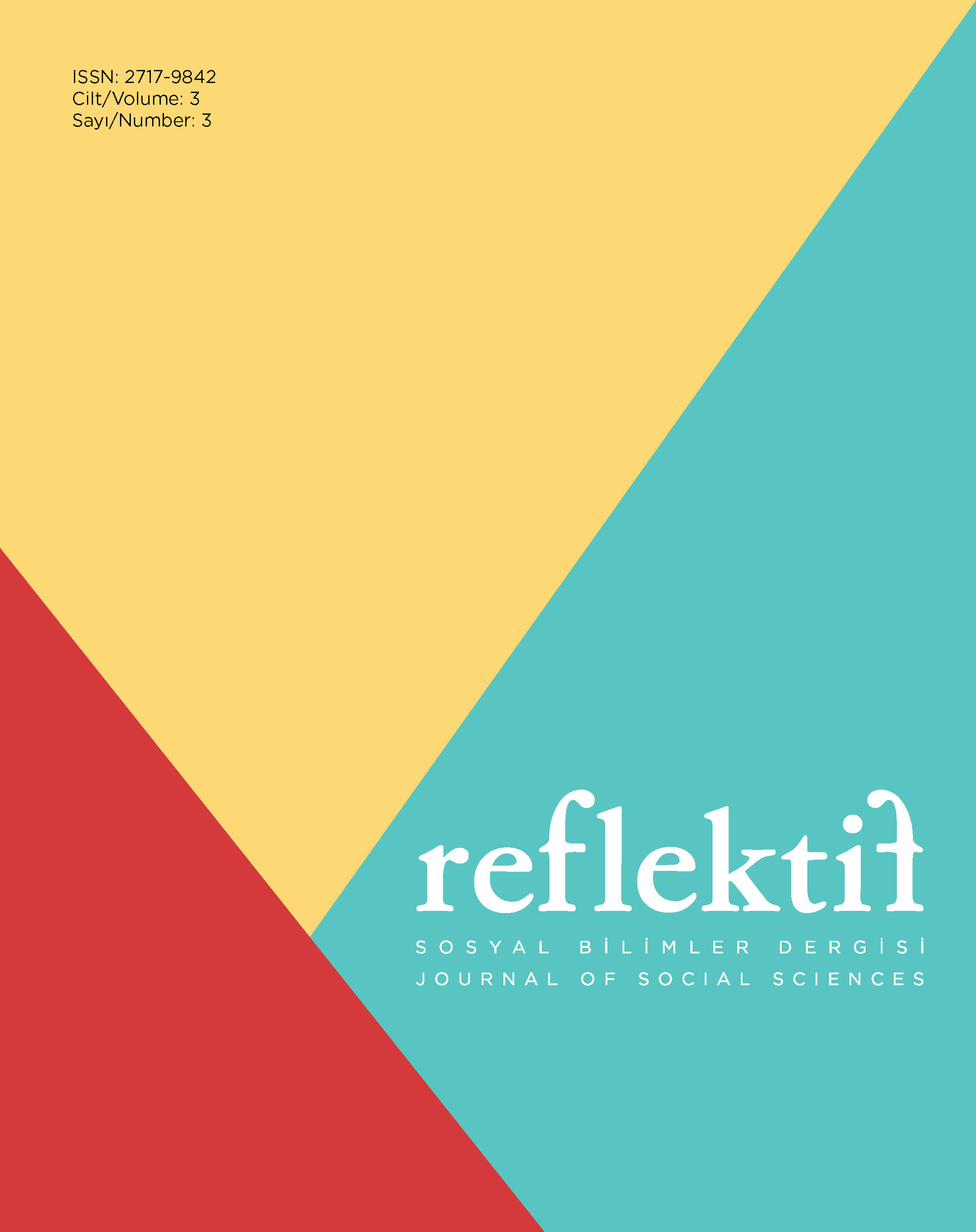(Neg)Antroposen ve Yaşamın Noetik Vasfı
Bernard Stiegler’in Antroposen Eleştirisi
DOI:
https://doi.org/10.47613/reflektif.2022.80Anahtar Kelimeler:
Negantroposen- eksosomatizasyon- katkı ekonomisi- farmakoloji- organolojiÖz
Sanayi Devrimi’nden sonraki dönemi ifade eden Antroposen, biyosferin evriminde önemli bir (f)aktör hâline gelen insanın etkilerinin yoğunlaştığı, zehir vasfıyla ortaya çıkan evreyi temsil eder. Antroposen, modern teknolojinin sanayileşme yoluyla gerçekleşen dünya üzerindeki egemenliğinden kaynaklanır ve ekolojik, psişik, sosyal, ekonomik ve özellikle de noetik seviyelerde bir entropi üreterek kendi gelişiminin sorgulamasını engeller. Bilginin bütün formları, Antroposen’de âdeta sınanır. Bu, yoğun bir entropi artışıyla ortaya çıkan bir proleterleşmedir. Bilgi ile başlayan kayıp, yaşamların yalnızca hayatta kalmak üzerine kurulu olması nedeniyle arzuya, tekilliğe ve geleceğe-yönelimlere kadar sirayet eder. Bernard Stiegler’e göre noetik varlık olarak insan, geçmişe-yönelimlerin içerildiği geleceğe-yönelimleri dışsallaştırarak bireyleşir. Antroposen, arzunun içine düştüğü bu krizden beslenir. Yaşamın arzudan azade yapısında geleceğe-yönelimlerin hiçlik ile dolu olması, bireyleşmenin de yitimi anlamına gelir. Olumsuzlukla ve krizlerle dolu olan Antroposen’den çıkmak, onun ötesine geçmek, sınırlarda düşünmeyi gerektirir.
İndir
Yayınlanmış
Sayı
Bölüm
Lisans
Telif Hakkı (c) 2022 Boğaç Berkmen

Bu çalışma Creative Commons Attribution-ShareAlike 4.0 International License ile lisanslanmıştır.
REFLEKTİF Sosyal Bilimler Dergisi'ne yayımlanması için değerlendirilmek üzere gönderilen makaleler, daha önce herhangi bir ortamda yayınlanmamış veya herhangi bir yayın ortamına yayınlanmak üzere gönderilmemiş olmalıdır.
Makalelerin yayıma kabul edilmesi durumunda ticari amaç da dahil olmak üzere ve aynı lisansı kullanılmak şartıyla, çalışmanın başka çalışmalarla birleştirilmesi, çalışmanın üzerine yeni bir çalışma yapılması ya da farklı düzenlemeler yapılmasına izin verilir.
REFLEKTİF Sosyal Bilimler Dergisi'nde yayınlanan çalışmaların telif hakları yazarına aittir. Yazarlar çalışmalarını çoğaltmak ve yaymakta özgürdür.








